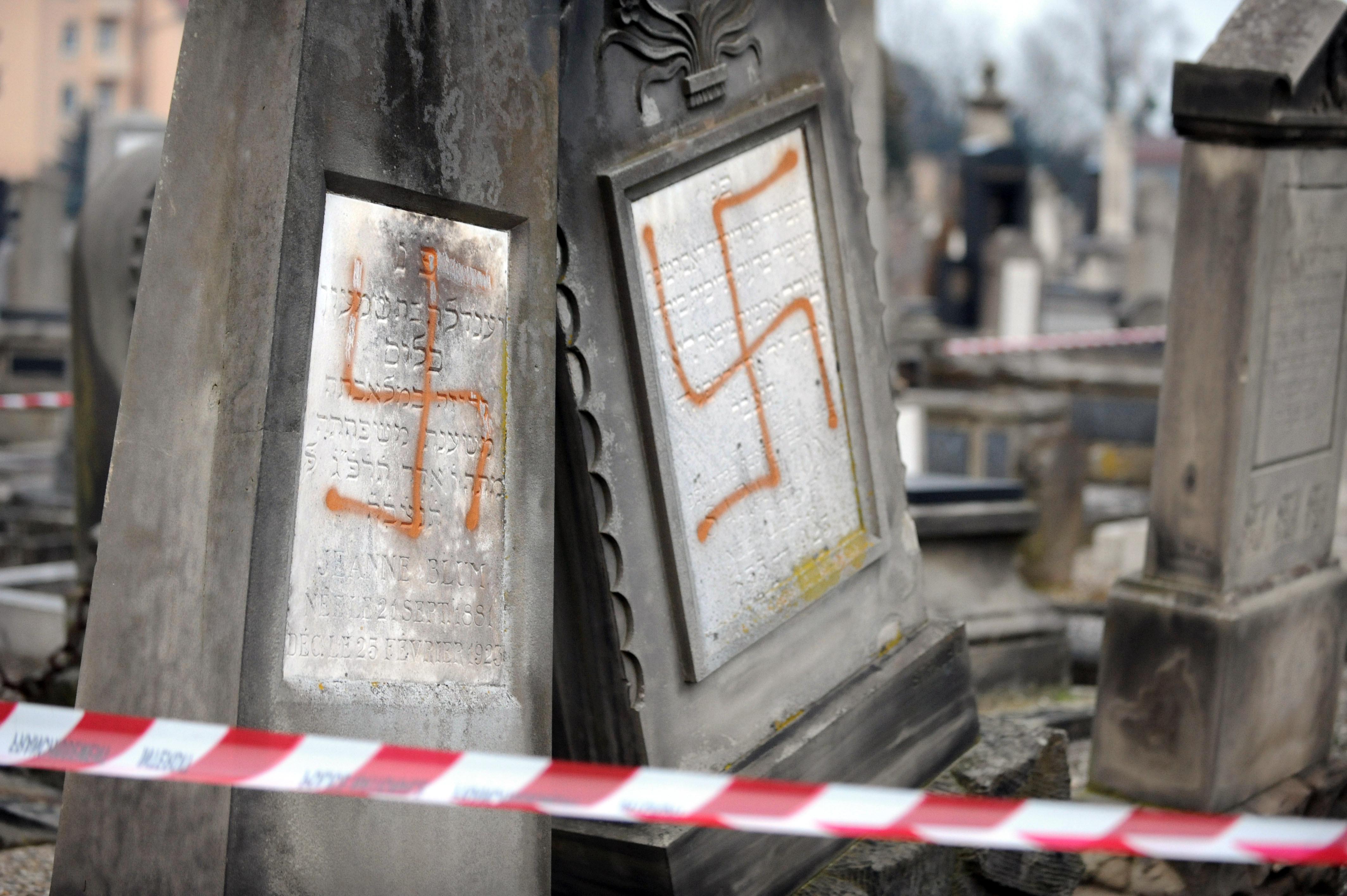It is unclear if the grocery store where a hostage situation unfolded earlier Friday was targeted because it is kosher, but the siege there follows a string of attacks on Jewish businesses and synagogues in France, the country with the third-largest Jewish population in the world, after the United States and Israel, as well as the largest Muslim population in Western Europe. Last month, speaking at a rally against anti-Semitism in the Paris suburb of Créteil, the country’s interior minister, Bernard Cazeneuve, said that anti-Semitic acts and threats had more than doubled in the past 10 months, and he promised to make the issue a “national cause.”
The rally was prompted by a particularly shocking crime in Créteil in which a couple was robbed and the woman raped in their apartment by armed assailants who told them they had been targeted because “you Jews, you have money.” Tensions reached a high point during last summer’s war in Gaza, when demonstrations turned violent with pro-Palestinian youths attacking Jewish businesses in a neighborhood known for its large Jewish population. Several synagogues were also firebombed. Demonstrators at some rallies chanted slogans like “death to the Jews” and “slaughter the Jews.” These incidents followed an attack in May on the Jewish Museum of Belgium in Brussels, where a French former ISIS fighter killed four people.
These attacks have added to the growing unease of a community still reeling from the 2012 shooting at a Jewish school in Toulouse, which killed three children and a teacher, as well as the grisly torture and murder of a young Jewish man named Ilan Halimi in 2006. While these dramatic incidents have garnered the most international attention, smaller anti-Semitic crimes have become depressingly commonplace. On New Year’s Day of this year, for instance, a fire was started and a swastika drawn on the wall of a synagogue in a Paris suburb.
While not all the perpetrators of these crimes have been Muslims—police also arrested five men believed to be “far-right” activists for making threats against a synagogue last month—the vast majority of them have been, and they have contributed to the increasing public unease about the country’s growing immigrant population.
Notably, Marine Le Pen, the leader of France’s anti-immigration National Front party, has taken steps to distance herself from the overt anti-Semitism and Holocaust denialism of her father, the party’s founder, and focused the party’s rhetoric on immigrants from the Muslim world.
Debates over anti-Semitism have spilled over into the country’s cultural conversation as well. Dieudonné, one of the country’s most popular comedians, has sparked outrage and hate-speech charges with jokes about the Holocaust and the all-powerful Jewish lobby, as well as his patented gesture, known as the quenelle, which resembles an inverted Nazi salute. And in 2009, Charlie Hebdo fired a cartoonist known as Sine for a cartoon the implied that Nicolas Sarkozy’s son was planning to convert to Judaism for financial reasons.
The distinction between anti-Israel and anti-Jewish sentiment can often get pretty hazy, but it seems apparent that Mideast politics are often used as cover for plain old anti-Semitism. While French leaders have vowed to combat this problem, and have recently taken responsibility for past moments in the country’s history of anti-Semitism (in December, France agreed to pay compensation to victims who had been deported to the camps on French railways), the country has seen a dramatic increase in Jewish emigration to Israel. The vast majority of the country’s 500,000-strong Jewish community is staying put, but Friday’s events will only increase a growing sense of unease.
